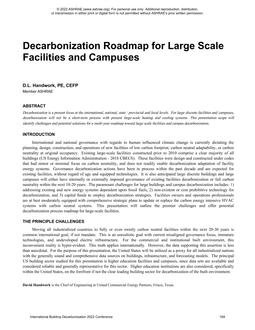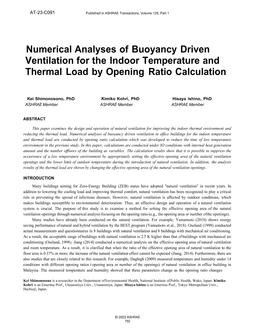
TO-22-C033 – Can Energy Codes Find the Right Balance Between Two Good Choices: Efficiency and Renewables?
Click here to purchase
The current generation of energy codes were born in the 1970s with the sole purpose of conserving energy in homes and buildings, and with no guidance surrounding renewable energy generation or grid integration for those structures. Over the intervening decades, that singular purpose has been complemented by increasing demands to reduce greenhouse gas emissions and to utilize a lower-carbon mix of fuel types. At the same time, the falling costs of renewable energy options, especially solar, have raised the importance of an optimizing calculus between renewable supply options and energy demand reduction options. The paper first reviews the framework for establishing the renewable/efficiency balance in California’s Title 24-2019 Residential code. Based on additional analysis, the paper then presents a new framework that encompasses the range of U.S. climate zones and building types covered by the model energy codes, with a special focus on single family homes. This optimization framework is analyzed for its implications to update prescriptive, performance, and rating (such as the Energy Rating Index, or ERI) compliance paths in the model codes. The calculus is also examined for its application in determining impacts of renewable/efficiency combinations on electric grid stability. Additional topics covered include accounting for procuring onsite and offsite renewable energy and for measuring increases in building resiliency. The paper then offers recommendations for code developers by addressing the underlying code issues with regards to accounting, reporting, compliance, and enforcement.
Product Details
- Published:
- 2022
- Number of Pages:
- 7
- Units of Measure:
- Dual
- File Size:
- 1 file , 1.5 MB
- Product Code(s):
- D-TO-22-C033
- Note:
- This product is unavailable in Russia, Belarus

